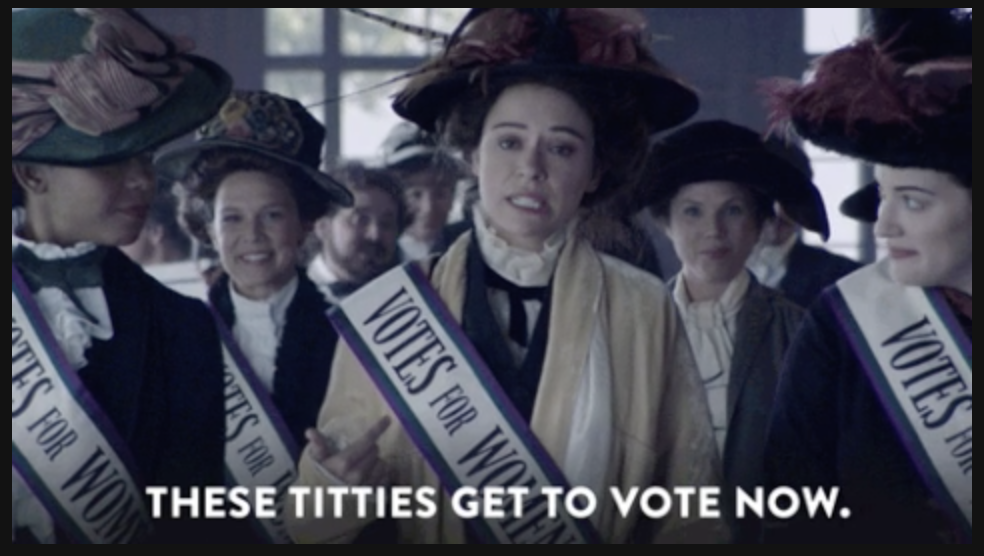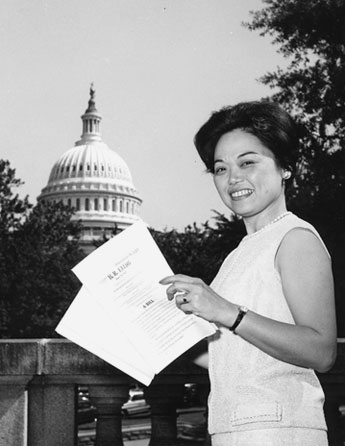Abortion rights, women of color, and LGBTQI+ people are under attack. Pledge to join us in fighting for gender justice.
Our Voting Rights are Under Attack and Kavanaugh’s Nomination is Another Blow

Throughout history, Supreme Court decisions in cases such as Leser v. Garnett — which forced states to recognize the 19th amendment — and Shelby v. Holder — which gutted a key part of the Voting Rights Act of 1965 — have played a crucial role in the rise and fall of voting rights in the U.S. Every decision from the Supreme Court that affects our right to vote also affects our ability to build a government and country that upholds our liberties and values.
The right to vote has both a direct and indirect impact on policy and legislation that affects women’s abilities to take care of themselves and their families. The people we vote for are responsible for creating and passing legislation that shapes the way we live, while the way we vote on issues helps elected officials gauge community attitudes about specific issues and measures. From creating laws to address problems in our communities to drawing district lines that determine how we are represented in government, elected officials play a critical role in our democracy and the legitimacy of that role is dependent on citizens’ full access to the right to vote.
It is no secret that voting rights in America are under attack and women of color, millennial women and trans folks have been uniquely disenfranchised by this attack. Voter ID laws have been shown to disproportionally target people of color who are less likely to have IDs and trans people who are often discriminated against when applying for IDs. In some states, legislatures have gone as far as attempting to close DMV offices in predominately Black communities, which makes it nearly impossible for people to obtain proper ID. Complicated absentee voting processes and laws that make it difficult to prove residency target young folks in college and low-income families who are less likely to have secure housing and move frequently. When young people, people of color, Queer folks, seniors, low-income families and disenfranchised communities are kept from voting, the result is detrimental.
Justice Kennedy’s recent retirement from the U.S. Supreme Court leaves a vacant Supreme Court seat that comes at a pivotal time for voting rights. Trump has nominated Brett Kavanaugh, who currently sits on the U.S. Court of Appeals for the D.C. Circuit, to fill the vacancy. Even while we are waiting to see an estimated million-plus pages of documents from his time as an official in the Bush White House, what we know of Kavanaugh’s record shows us that he is a dangerous pick for women on a broad range of issues — including voting rights. In the 2012 case South Carolina v. United States, Kavanaugh voted to uphold a South Carolina voter ID law that the Justice Department determined violated the Voting Rights Act. The voter ID law kept thousands of Black voters from having access to the ballot. Legislators who backed the bill claimed it was to prevent voter fraud. However, there was not a single substantial case or any proof of voter fraud in the state. Furthermore, the record was replete with evidence suggesting the law was racially motivated—including the bill sponsor replying positively to a racist email sent in support of the voter ID law. Nonetheless, Kavanaugh downplayed the importance this evidence and authored the opinion upholding the law, stating, “We conclude that South Carolina’s goals of preventing voter fraud and increasing electoral confidence are legitimate; those interests cannot be deemed pretextual merely because of an absence of recorded incidents of in-person voter fraud in South Carolina.” Kavanaugh upheld a racist policy to fix a problem that did not and does not exist.
Kavanaugh’s decision in this case gives us reason to worry about how he will approach voting rights cases if he is confirmed to the Supreme Court. In a time when more states are creating barriers to the franchise, the Supreme Court will likely have the opportunity, once again, to decide the future of our voting rights. We deserve a Justice that will protect every citizen’s right to vote and strike down efforts to create barriers to exercising that right. Kavanaugh’s record shows that he will not be that Justice. For this reason, and many more, we need Senators to oppose his nomination. The future of our democracy depends on it.





